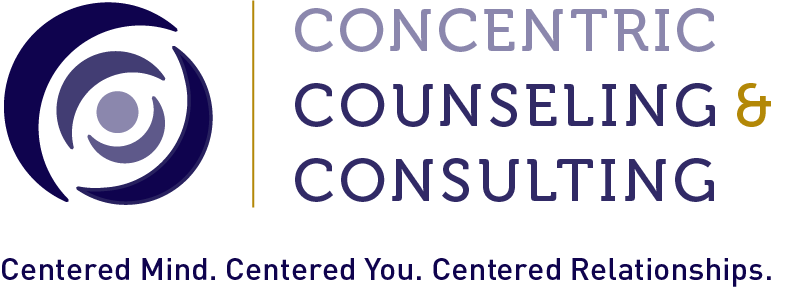Ask the Therapist? How to Help a Young Child with Anxiety Issues?
/By Concentric Counselors Jennifer Larson, LCPC, NCC & Ashley Allis, LCPC, NCC
Over this past weekend, we participated as one of the local small businesses at the Sauganash Small Business & Eco Fair. This Fair was open to the public and was an opportunity to build relationships within the community as well as to raise money for Sauganash Elementary, a Chicago Public Schools (CPS), which continues to experience cuts that impact the educational needs of the students and teachers.
At this event, we offered Ask The Therapist? -- an opportunity for people who visited our table to write down an anonymous question related to mental health and well-being issues that they or a loved one may be facing. Over the upcoming weeks, we will be posting the anonymous questions and our answers. So, feel free to re-visit this blog.
Ask The Therapist? is to provide some helpful information, guidance, and resources only. This information is not intended to give a diagnosis, replace child, adolescent & family therapy, or provide treatment recommendations for a mental health disorder. Make sure you see your doctor or mental health provider if you think you or a loved one may have symptoms of a mental health disorder which warrants professional help.
HOW DO YOU HELP A YOUNG CHILD WITH ANXIETY ISSUES?
Parents play a big role in helping young children manage their anxiety. When a child uses coping tools and their brave behavior is praised, young children can learn to manage their anxiety and gain confidence. Sometimes parents become anxious when their child experiences anxiety that they think the best option is to become overprotective or to enable the child to avoid the very thing or situation that triggers anxiety. Avoidance can lead to fueling and increasing the anxiety.
The first step would be to tell your child what anxiety is, how it shows up in our thoughts, physical sensations, emotions, and behaviors, and that anxiety is normal to experience. You can help your child identify how he or she experiences worry physically in his or her body, such as some children feel butterflies in their stomach, their hands may get sweaty, or behaviorally as they may want to hide. If you as a parent have anxiety, you can share your anxiety which can be validating and normalizing for your child.
The next step would be to identify the type of anxiety (and its respective triggers) and to learn tools that can help your child reduce their anxiety. You can become educated by learning the many tools for helping your child learn how to manage his or her thoughts, physical sensations, emotions, and behaviors.
Filling up a toolbox of tools can be one of the most helpful ways to assist your child with anxiety issues. Examples of some coping tools could be coloring, squeezing a ball, deep breathing, engaging in positive thoughts, and coming up with comforting, visual imagery. You can encourage your child to ‘test’ those tools out and see which ones are more effective. Also, encourage your child to come up with ideas that will help the anxiety. This ownership can instill confidence, a sense of responsibility, and hopefulness.
For more resources on childhood anxiety, check out: http://www.anxietybc.com/parenting/childhood-anxiety http://www.anxietybc.com/parenting/complete-home-tool-kit
To learn more about our specific services, check out: Child, Adolescent & Family Therapy AND Solution-Focused Services for Parents








